"Terrific one-man, one-act play. The tale Tim tells is raw and raucous - part Sopranos, part Archie Bunker and Noone has plenty to say about immigration."
The New Yorker, Feb 2023.
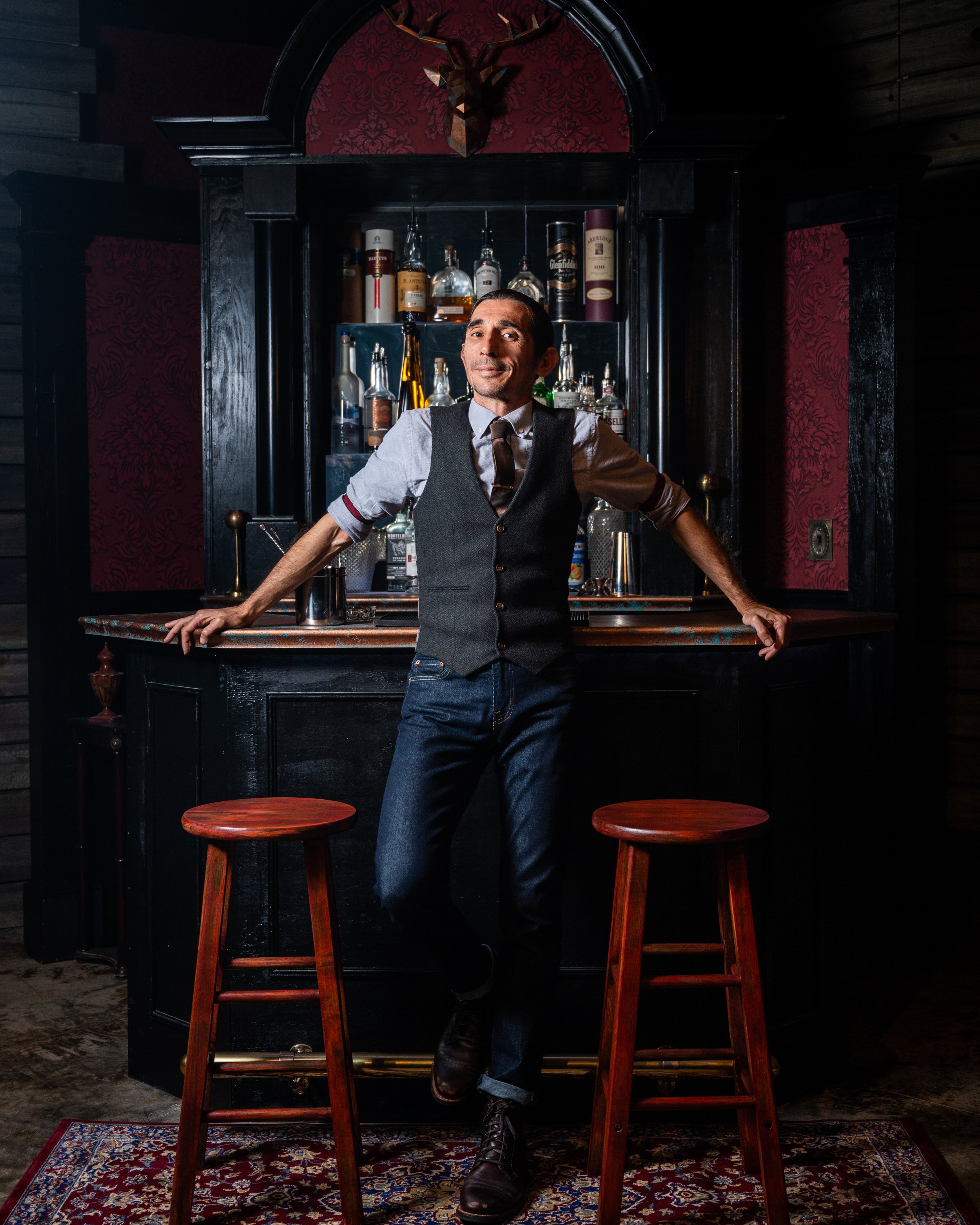
Above photo Dylan Jon Wade Cox

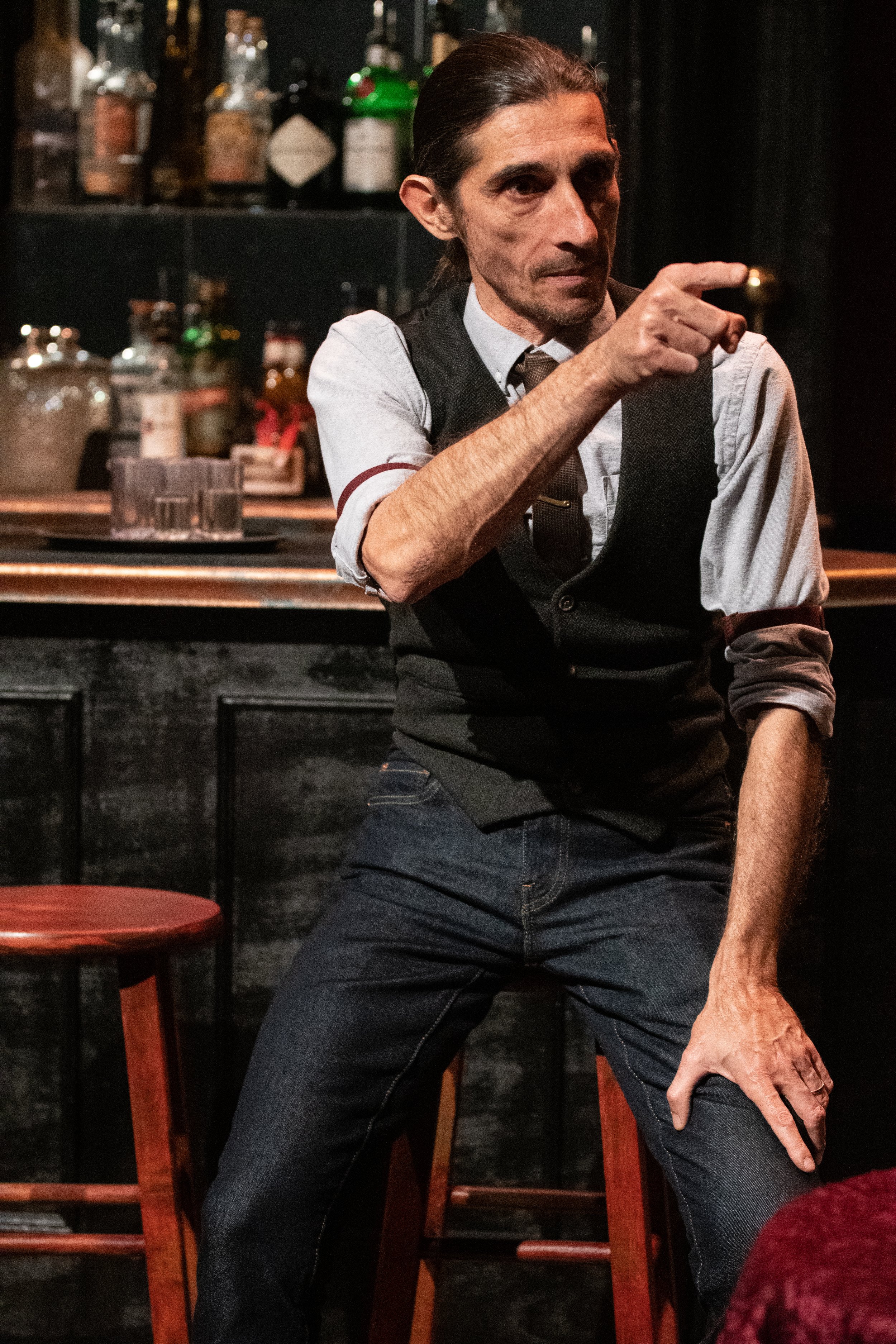
Above photo Dylan Jon Wade Cox
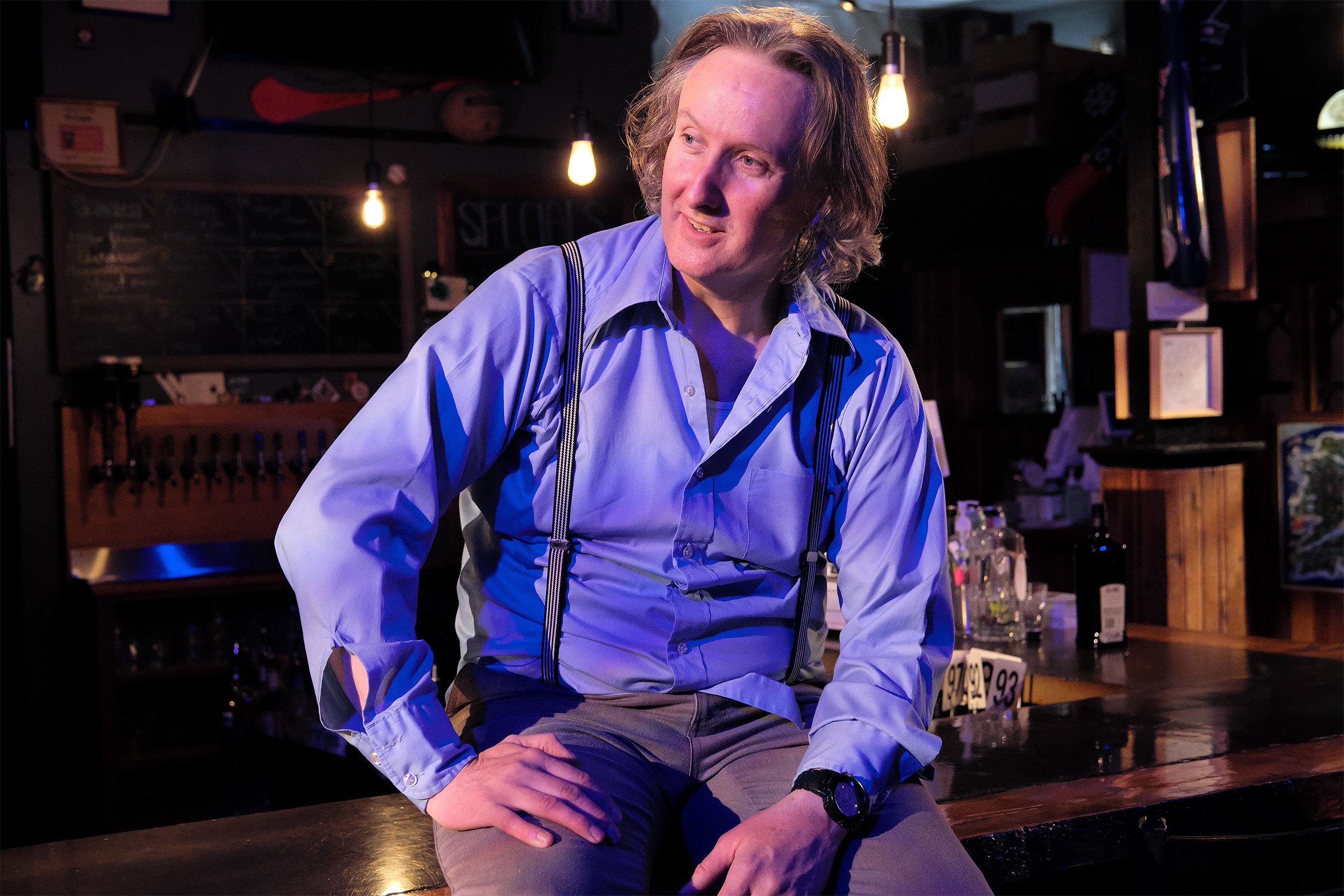

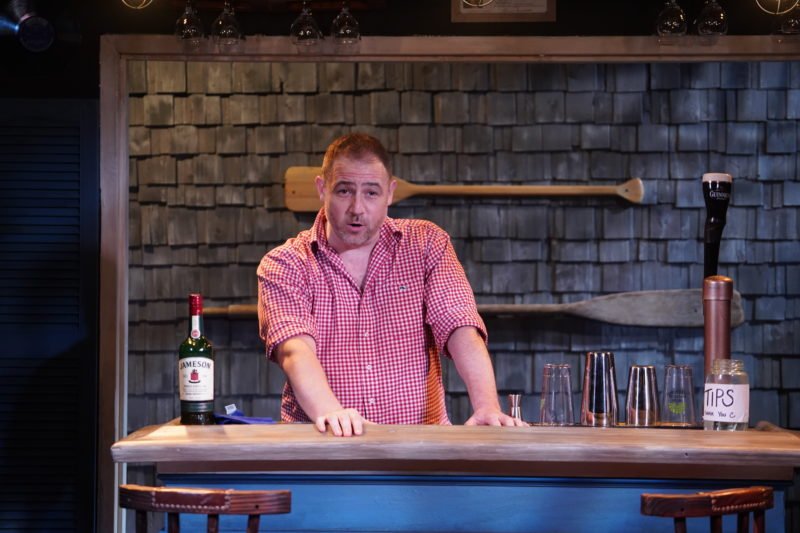
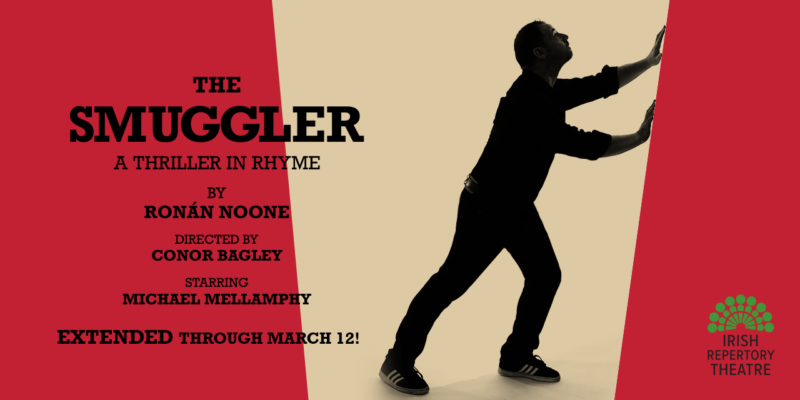
Synopsis
The Smuggler is a Thriller in Rhyme. It's 2023. Tim Finnegan is an Irish immigrant trying to make it as a writer on Amity, an affluent summer colony in Massachusetts, where tensions flare between the migrant and local communities after a fatal car crash. When he loses his job as a bartender, Tim gets drawn into the dark underbelly of the island. The Smuggler examines how far one man will go to restore his self-respect and asks the question, "What does it mean to be an American citizen today?"
THE SMUGGLER TEASER
Video of Ronán Noone's THE SMUGGLER at Irish Repertory Theatre
PRODUCTION INFORMATION
Title of work: The Smuggler
Published and licensed by TRW Plays 2023
Published to buy here on Amazon 2022
Published by the Author
Awards and Notices
‘Best playwright award’ —1st Irish Theatre Festival New York
*The Smuggler: 2020: Won the Elliot Norton Award for Outstanding Solo Performance
Press:
“Terrific,” Ken Marks, - New Yorker
“Rarely has a man’s moral decline been made so purely entertaining to watch” Theatermania, Feb 2023
“When the thrills come they pack a wallop” Talkin’ Broadway
*Recognized as The Surprise Hit Show of 2019 in Washington DC - DC Theatre Scene
*Recognized as “Picks from the Year’s Best Theater” 2019 (Solas Nua) – New York Times
“Ingeniously Crafted.” “Dazzling Acted” - Theatremania
“A tour de force solo performance” “Ripping Yarn” “Critics pick” - Boston Globe
“One of DC’s coolest site-specific shows ever” - DC Metro
“Both Charms and Chills” Sarasota Magazine, 2022
”I sat horrified and charmed at the same time.” Sarasota, Heraldtribune, 2022
"Brilliant" Judy Nedry -Theatre Reviews, Portland, Oregon, 2022
“The scenes captivating. Turning a one-man performance into a drama significant to the contemporary world” – The Harvard Crimson
"Terrific one-man, one-act play. The tale Tim tells is raw and raucous - part Sopranos, part Archie Bunker and Noone has plenty to say about immigration."
-The New Yorker
"Rarely has a man's moral decline been made so purely entertaining to watch."
-Theatremania
"Winner of the Best Playwright Award 2019."
-1st Irish Festival New York
"The Surprise Hit Show of 2019 in Washington DC."
DC Theatre Scene
"Picks from the Year's Best Theater" 2019.
-New York Times
Nice Things People Have Said
"Clever, entertaining and thought provoking... A dark comedy with teeth."
—Sarasota Magazine (full review)
"Entertaining as hell. The Smuggler is stealing hearts, minds and everything that’s not nailed down."
—Observer (full review)
"A masterful performance...A level of excellence we rarely have the chance to witness in person."
—Bradenton Times (full review)
"Captivating! I sat horrified and charmed, watching Davies smoothly wrap us in his web of deceit and crime."
—Sarasota Herald-Tribune (full review)
ABOUT THE PLAY
Nine Thousand Words
in Rhyme
Where did this play begin?
"The Smuggler is pulp fiction with a wicked sense of humor and some brutal social commentary. And I loved the rhymes too."
I arrived in America, in 1994, I visited Ellis Island, and I read this quote on the wall. "Well, I came to America because I heard the streets were paved with gold. When I got here, I found out three things: first, the streets weren't paved with gold; second, they weren't paved at all; and third, I was expected to pave them." Old Italian story.
I knew I would use it someday. I didn't know how and I didn't know when. But I wrote it down as the opening of the second act of the first draft of this play in the Summer of 2017. Twenty-three years later! Writers have antennae ready to read the air waves for anything that has even the slightest suggestion of a good idea for an inciting event. Some use notebooks and some of us just remember the image, sound, quote, or anecdote and we find a way to work it into a story. Maybe this play started back then on Ellis Island.
And I worked many occupations on my way to becoming a writer, as you do. And I picked up the vocabulary and the experience of different worlds. I explored characters. I didn't necessarily know that while I was on the job. I just needed the money to stay alive. But my antennae was up. In the case of The Smuggler, I was painting houses, interior and exterior on Martha's Vineyard. I sat with fellow immigrants who brought money to work in their lunchbox, because they didn't want it stolen. They couldn't open bank accounts because they were undocumented. There were makeshift kitchens on the Island where the painters could buy the food familiar to them. It's not widely recognized, but when you leave your home country, the thing you miss most and the thing that brings you back is the food. The rice. The beans. The Tayto. The Tea (Barry's). There's an underbelly to the immigrant's world. We seek the familiar, whether it's going to an Irish pub in America and hoping to find people who sound like you. And then determining the accent to make even stronger connections. I can overhear and distinguish a Galwegian accent from a Corkonian accent from ten feet away and in less than a sentence. Just like Professor Higgins. When we come to America we are always trying to find pieces of home so we can settle in with some ease. Sunnyside, Washington Heights. Chinatown.
And as a playwright, I am constantly looking for ways to make sense of the world to me: What does it mean to act in particular way? Why do we treat each other the way we do? What are the repercussions? Can I build a moral compass based on these facts? Can I be contributing in a better way to society? If I do this thing does this make me a bad person? How can I change? Does it illuminate the hypocrisy around me? Am I a hypocrite? I write the story for me first. Then, I imagine it for an audience, but there has to be something fresh in the story too; the way it is told, the characters' depth, the plot twist, language, the comedy, and the interactions of the narrator with the audience and if it is compelling it can encourage an audience to ask questions for themselves.
In terms of the writing process, I completed three quarters of the first draft of this story before it started to rhyme. This simple idea of rhyming lit me up. So I went back to the beginning to rhyme it from the top. It focused the language. It killed that inherent Irish volubility which, sometimes, let's be honest, is not a bad thing. And it added wonderful comedy; a cheap rhyme can be great fun for heightening the spectacle. And another thing while I'm on it; in the literary arena a good plot twist is unfortunately undervalued com-pared to a well-structured sentence. I'm just letting that be known.
Finally, I started out as a novice journalist in Ireland, but I was told I was "deconstructive." I'm not sure what that meant but I'm guessing I didn't follow the formula. They complained that I chose to concentrate on the wrong protagonist. Or the wrong event. Or I got "cute" and creative with the structure of the feature. God knows, maybe I was rhyming back then too. Nevertheless, I learned the craft and it became the silver lining that turned me into a storyteller. And one day in the early 2000's, I was painting with a young Brazilian woman on Martha's Vineyard. She said she had something to tell me. She had heard that I had worked as a journalist for a time. And through a translator she told me about her journey crossing the border into America using a "Coyote," people smugglers. She said she was kept in a cheap motel for thirty days after crossing. She told me about the fear she experienced while being surrounded by so many fellow migrants, mainly men. And eventually she was flown from Houston to TF Green in Rhode Island and driven to the Vineyard.
But during her story, the image that struck me most was when she described the time she crossed the river at night into a field on the American side. She said the Coyote pushed her to the ground, told her to lay flat and close her eyes. Later, when she asked him why she had to close her eyes, he said when Customs and Border control survey the field they use flashlights and if your eyes are open the light reflects off them and that's how they get you.
I think the fact she was told she was safer with her eyes closed has become a metaphor for this story, and an illustration of how we deal with immigration issues in America.
Ronán Noone 2021